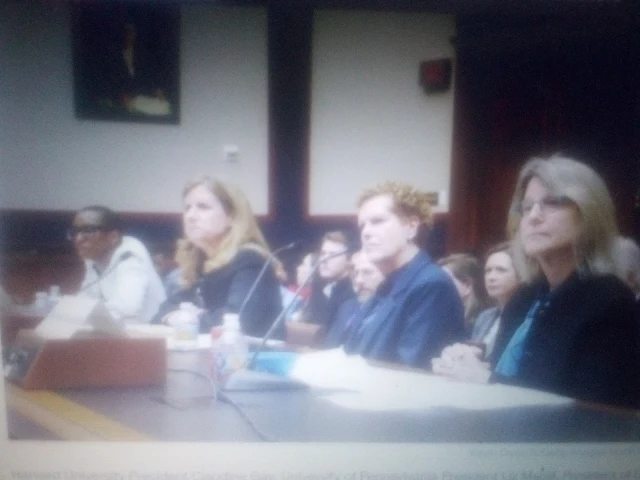Online report
Published 10:21 AM
EST, Fri December 8, 2023
Numerous college presidents are facing
criticism about their responses to antisemitism on their campuses. But none
more than University of Pennsylvania President Liz Magill.
the presidents did not explicitly say
that calling for the genocide of Jews would necessarily violate their code of
conduct on bullying or harassment. Instead, the school leaders explained it
would depend on the circumstances and conduct.
But Magill appears to be the university
president most imminently at risk of losing her job, because Penn’s campus has
been roiled by controversies about the conflicts in the Middle East for longer
than other schools – and Magill’s multiple unsuccessful attempts to satisfy
critics have resulted in an uproar from donors and tumult on the school’s
board.
In September, weeks before the Oct. 7
Hamas attack on Israel, the University of Pennsylvania allowed speakers that
Penn’s administration acknowledged had a history of making antisemitic remarks
to participate in the “Palestine Writes Literature Festival” on campus.
In response to the criticism of the
university’s decision to allow the controversial speakers, Magill and other top
university administrators issued a statement that tried to satisfy both sides
of the controversy but ended up angering both supporters of Israel and
Palestinians.
“We unequivocally – and emphatically –
condemn antisemitism as antithetical to our institutional values,” said the
statement. But it added that “as a university, we also fiercely support the
free exchange of ideas as central to our educational mission. This includes the
expression of views that are controversial and even those that are incompatible
with our institutional values.”
In response, 36 members of faculty at
the school, before the festival was held, signed a letter criticizing that
statement and Magill.
“It is equally important for us as
educators to declare our support for Palestinian artists and writers, making it
clear that we condemn antisemitism as well as Islamophobia and the oppression
of Palestinians,” said the letter. “We ask that as leaders of the Penn
community, you immediately amend your statement so that it is clearly in
support of a diversity of views and diversity of religious, racial, and
cultural communities on campus.”
Numerous donors also approached Magill
and the school about the festival and Penn’s tepid response. Weeks later, when
Hamas attacked Israel and killed at least 1,200 people, that simmering
resentment turned into a boil of anger.
When Republican Rep. Elise Stefanik
asked Magill whether calling for the genocide of Jews would violate Penn’s code
of conduct, Magill answered “It is a context dependent decision.”
In a short video released Wednesday
night, Magill said the university would immediately review and clarify its
policies on hate speech.
“I was not focused on – but I should
have been – the irrefutable fact that a call for genocide of Jewish people is a
call for some of the most terrible violence human beings can perpetrate. It’s
evil. “I want to be clear: A call for genocide of Jewish people … would be
harassment or intimidation.”
Magill noted antisemitic speech is
designed to threaten and terrify Jews and remind them of the Holocaust, pogroms
and other recent acts of violence against them.
“As president, I’m committed to a safe,
secure and supportive environment so all members of our community can thrive,”
Magill added. “We can – and we will – get this right.”
But so far, few of her critics believe
she has gotten it right, and calls for her ouster have only gotten louder.
